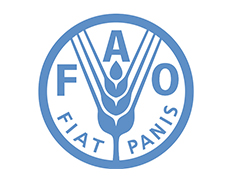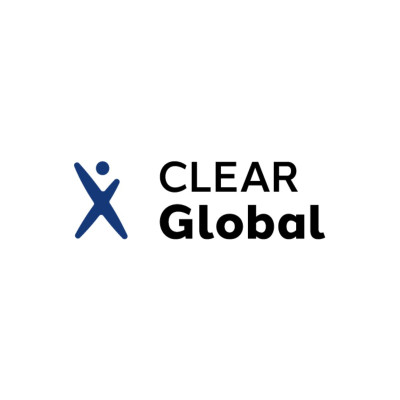Details
Description
Background
UN Women, grounded in the vision of equality enshrined in the Charter of the United Nations, works for the elimination of discrimination against women and girls; the empowerment of women; the achievement of equality between women and men as partners and beneficiaries of development; human rights; as well as humanitarian action and peace and security. Placing women's rights at the centre of all its efforts, UN Women leads and coordinates United Nations (UN) system efforts to ensure that commitments on gender equality and gender mainstreaming translate into action throughout the world. It provides strong and coherent leadership in support of Member States' priorities and efforts, building effective partnerships with civil society and other relevant actors.
More than 30,000 individuals, including family members, from more than 80 countries are believed to have travelled to Syria and Iraq to join Da’esh and other UN designated terrorist groups. While some family members joined voluntarily, many others were forced, manipulated, or coerced to travel with family members or to follow them. Moreover, thousands of children were born into the conflicts in Syria and Iraq to foreign parents. In Central Asia, Kazakhstan is one of the few countries that has repatriated the majority of its nationals from both Syria and Iraq. This includes 420 children some of whom had never been to Kazakhstan, needed to acquire an additional language, and were meeting the relatives who will care for them for the first time. Since 2019, in Kazakhstan, the rehabilitation centres for women and children returning from conflict areas were organized to support their resocialization and adaptation. Authorities helped the women to obtain a job, receive documents and adapt to a peaceful life. Since 2018, Tajikistan has received 19 returning children from Syria and has repatriated 84 children from Iraq. While the 19 returnees from Syria were reintegrated to communities of origin, the 84 returnees from Iraq remain in residential institutions and have yet to be reunified with families and communities of origin. Tajikistan requires stronger and more consistent support from the UN as it lacks experience in reintegrating children and women affected by armed conflict back into society. Efforts have already begun by engaging Tajikistan in regional dialogues on reintegration approaches taken by other Central Asian countries. Since May 2019, Uzbekistan has implemented three campaigns to repatriate its citizens from Iraq and Syria. Of its 220 repatriated Uzbek nationals from Syria and Iraq, 172 were children, and 48 were women who were given legal amnesty which allowed them to be reintegrated into communities with their children or family members. In December 2020, an additional 25 Uzbek women and 73 children who had been living in armed conflicts zones in Syria were repatriated. In addition to repatriations from Syria and Iraq, Uzbekistan has repatriated a number of women and children from Afghanistan.
Under its regional Women, Peace and Security, and Humanitarian Action portfolio, UN Women will focus on four countries in Central Asia - Kazakhstan, Tajikistan, Uzbekistan and possibly Kyrgyzstan - and will work under specific results areas relevant to each country’s context. The overall objective of the project is to support States in Central Asia in the rehabilitation and reintegration of their citizens returned from conflict zones. The project is being implemented through two joint UN Programmes in Central Asia: (i) with the United Nations Children’s Emergency Fund (UNICEF) and European Union (EU) in Kazakhstan, Tajikistan, Uzbekistan, and possibly Kyrgyzstan; and (ii) with the United Nations Office of Counter-Terrorism (UNOCT) and United States Agency for International Development (USAID) in Uzbekistan. In cooperation with the UN system in Central Asia the project envisions to provide child and human rights-based, age and gender-sensitive technical assistance to Kazakhstan, Tajikistan, Uzbekistan, and possibly Kyrgyzstan to support families of the returnees from primarily Syria and Iraq. The project will increase advocacy and contribute to national efforts to effectively mainstream gender and human rights perspectives in policy frameworks, processes, and measures to address Screening, Prosecution, Rehabilitation and Reintegration (SPRR) at the national level. The project will also leverage experience gained from work in the four participating countries to facilitate information exchange and dialogue on gender-sensitive recovery and rehabilitation measures with other Member States in the Central Asia region.
Reflective of the above, the UN Women Europe and Central Asia Regional Office is seeking to recruit an International Consultant as the lead researcher to conduct gender assessments on challenges and needs of returnee women, children and citizens from conflict zones in Syria and Iraq to participating Central Asia countries, and develop recommendations to inform policies, programme activities and recovery measures.
Duties and Responsibilities
GOAL AND OBJECTIVES
The main objective of this consultancy is to conduct a gender assessment in the participating countries of the project to (a) identify gender and child specific challenges and protection needs of returnees targeted by the project and (b) develop gender sensitive evidence-based recommendations to inform policies, programme activities and recovery measures, in close consultation with local civil society, relevant authorities and women's organizations. The International Consultant will be supported partly by a team of national consultants (in Kazakhstan, Tajikistan and Uzbekistan), at the stage of organising the consultations, focus group discussions etc.
SCOPE OF WORK AND SPECIFIC TASKS
Under guidance of the UN Women Regional Office for Europe and Central Asia and under the supervision of the Programme Coordinator (UN Women in Kazakhstan), the International Consultant will perform the following tasks:
Document review
Desk review/research of key and relevant national and international documentation to establish the current state of returnee women, children and citizens to Central Asia including the Concluding Observations of the CEDAW Committee, CRC Committee, National Review of the Beijing Declaration and Platform for Action, and the Universal Periodic Review (UPR) recommendations.
Desk review of available data sources and indicators on returnees at the international and national level in Central Asian countries
Document review to identify gender responsiveness of state, civil society and other stakeholder’s community-based activities, focusing on the interlinkage between protection, social reintegration through economic recovery, and social-cohesion.
Develop an inception report, including a situational analysis on the current status of returnees in Central Asia countries participating in the project.
Methodology Design
Facilitate a consultation with a select number of returnees to identify main topics of the assessment and research; careful consideration should be given to engaging children as some of them might be victims of violence and abuse. Engagement of children as respondents should follow ethical standards and procedures.
Facilitate an inception workshop/consultation with local civil society, relevant authorities and women's organizations to discuss and plan the gender assessments with multi-stakeholders, and development of assessment tools.
Develop the assessment tools including questionnaires, guidelines and protocols to be used for quantitative and qualitative primary data collection, on gender and child specific challenges and protection needs of returnees (women and children) and actions for their rehabilitation and reintegration.
Data collection
Design and oversee the execution of quantitative survey covering different categories of returnees, in-depth research through individual and focus group interviews, using mixed mode of data collection.
Collect data and evidence related to returnees’ situation from different stakeholders, including local civil society, relevant authorities and women's organizations.
Conduct data needs assessment to monitor and inform programmes and actions on protection needs of returnees delivered by relevant stakeholders.
Review available reports, information materials, press releases and webpages on protection needs of returnees maintained by relevant institutes and ministries.
Reporting and Validation
Conduct data analysis and analyse and summarise responses/information provided by respondents and stakeholders.
Present preliminary findings, incorporate feedback, produce final presentation, draft and finalize research reports.
Develop gender sensitive practical solutions and evidence-based recommendations to inform policies, programme activities and recovery measures, by local civil society, relevant authorities and women's organizations.
Presentation of findings
Disseminate findings and recommendations in at least 2 roundtables.
DELIVERABLES AND TIMELINE
The International Consultant will be required to support and produce the following indicative key deliverables within a period of 10 months:
Deliverables
Amount of payment
Work plan with list of monthly deliverables to be updated each month and cleared by Supervisor
By 5th of each month
NA
Summary report of tasks performed under expected duties and responsibilities and deliverables
On a monthly basis, by 25th of every month
Monthly lumpsum
Final consolidated report with indication of key achievements and handover notes
By 20 June 2022
Final month’s lumpsum
Competencies
Core Values:
Respect for Diversity
Integrity
Professionalism
Core Competencies:
Awareness and Sensitivity Regarding Gender Issues
Accountability
Creative Problem Solving
Effective Communication
Inclusive Collaboration
Stakeholder Engagement
Leading by Example
Required Skills and Experience
Education and certification:
Minimum is an advanced degree (Masters) or equivalent in demography, statistics, economics, gender, sociology, or other fields of study of social sciences – that is relevant to the requirements of the Terms of Reference.
A Bachelors degree will be accepted with two additional years’ experience in lieu of a masters.
Experience:
At least 8 years of professional experience in the area of data and research, with an emphasis on gender and child rights statistics and analysis, and preparing research reports and evidence-based recommendations to inform policies and programmes.
Proven 3 to 5 years professional experience with data and statistics in conducting needs assessment.
Proven 3 to 5 years of experience in conducting qualitative and quantitative research/surveys, developing tools for primary data collection, conducting secondary data collection, analysis and reporting.
Previous professional experience with data and gender analysis in implementing similar programmes/projects and published research on gender equality and/or women’s empowerment is an asset.
Experience working in the UN and the Europe and Central Asia region is an asset.
LANGUAGE AND OTHER SKILLS REQUIREMENTS:
Fluency in written and spoken English is required.
Computer literacy and ability to effectively use computers, including advance Excel skills.
Excellent communication, writing skills, and analytical skills.



